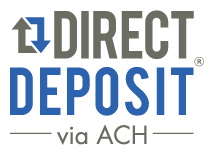Ethanol Under Stress
The renewable fuels industry has been on a roller coast for several months now and the financial stress is widespread throughout the sector.
In response to a challenge brought against the EPA by the Renewable Fuels Association, National Corn, the American Coalition for Ethanol, and the National Farmers Union, 10th circuit federal court ruled in early January that the EPA didn’t have the authority to issue small refinery exemptions from the renewable fuels standard (RFS) for three refineries. The court determined that hardship extensions were intended to help the industry transition to meeting the RFS blending requirements. If a refinery didn’t qualify for a hardship exemption in prior years, it shouldn’t qualify for an extension of an exemption that was not previously granted.
As background, the Trump administration’s EPA granted 85 small refinery ‘hardship’ exemptions between 2016 and 2018 totaling more than 4 billion gallons of demand that was lost. For 2015, the number of extensions approved by EPA was down to 7. Most of the exemptions that were granted in 2016-18 had either not previously received a hardship waiver or their temporary or ‘transitional’ exemptions had lapsed.
Refiners insisted that the ruling be appealed. In late February, thirteen oil state Senators asked President Trump to appeal the 10th circuit decision suggesting that if the ruling stands it would put, ‘a dozen small refiners under severe financial strain and thousands of jobs at risk.’
On March 24th, the Trump administration decided not to appeal the 10th circuit ruling and indicated that they may apply the ruling nationwide. This was a big win for the renewable fuels industry despite continuing efforts by refiners to continue with their appeal. Still, Trump administration officials indicated that they would look for other ways to help blunt the financial impact of the decision.
In the midst of all of this the oil and ethanol industry were beginning to feel the oil price war between the Saudis and Russians. Add to that the impacts of the novel coronavirus and all parties were pleading for federal assistance and relief.
The ethanol industry insists that the 10th circuit ruling be applied to the 25 pending petitions before the EPA for 2019. The industry also points to a 2017 U.S. District court ruling that ordered the EPA to restore 500 million gallons of inappropriately waived 2016 blending requirements and a 2020 EPA rule whereby EPA must account for exempted volumes to make sure RFS requirements are met.
On May 1st farm and renewable fuel groups asked the EPA to oppose the American Petroleum Institute’s petition to request reconsideration of the 2020 final rule on the RFS. The API letter wants the final rule to eliminate any measure to ‘reallocate’ demand destruction related to the small refinery, hardship waivers. They pointed out that the EPA has yet to officially confirm that the 10th circuit decision would be applied nationwide.
In late May, renewable fuel advocates became alarmed when they learned that small refineries were petitioning the EPA for exemptions for previous compliance years for which they had not timely applied. Presumably, the goal is to retroactively request waivers and make them eligible for continued waivers in line with the 10th circuit ruling. Importantly, the EPA informed members of the Senate Environment and Public Works committee that they were sending the DOE those requests despite the fact that they were not appearing anywhere on the EPA’s RFS dashboard (that would normally list all waiver applications).
In a letter to the EPA, Renewable Fuels Association President Geoff Cooper wrote that requests SRE exemptions from prior years is “no more than a thinly veiled attempt to circumvent” the 10th circuit court decision. “This end-run strategy was explicitly acknowledged by Under Secretary Menezes who described the prior year exemption petitions as ‘gap fillings’ intended to establish, without regard to merit, a continuous string of exemptions ‘to be consistent with the 10th Circuit decision.’”
After weeks of delay, on June 18th the EPA finally posted 52 petitions for retroactive waivers on their dashboard. The waivers are for compliance years 2011 through 2018. The oil industry is split on whether the EPA should approve the waivers. A refiners industry organization insists that the EPA wrongly denied waivers in the past to justify retroactive relief. The American Petroleum Institute (API), on the other hand, will not support granting prior year waivers. Instead, the API suggests the requests are evidence of a broken RFS that should be repealed.
In a statement released by Growth Energy, CEO Emily Skor stated, “EPA’s dashboard confirms that the refiners hope to rewrite history, just to bypass the 10th Circuit Court and push more biofuels out of the marketplace.”
Adding more uncertainty by consideration of these ‘gap filling’ exemptions would add insult to injury. More than 70% of ethanol plants have either shut down or substantially reduced production due reduced demand for driving fuels. Offering up more waivers (or a string of prior year waivers) would make the situation much worse for the entire corn milling industry.
Sources: Farm Progress; Progressive Farmer; American Coalition for Ethanol, Reuters








